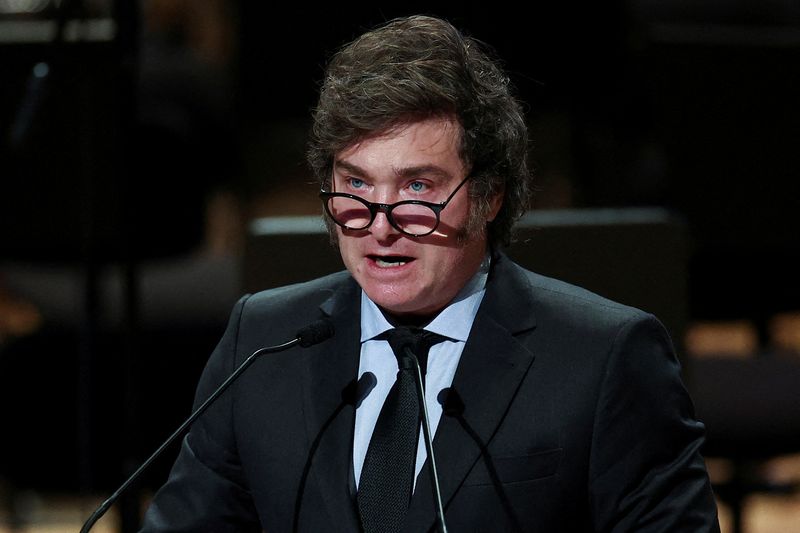BUENOS AIRES (Reuters) -Argentina posted primary fiscal and financial surpluses in April, the economy ministry said on Thursday, driven by an austerity package under new libertarian President Javier Milei, though the figures were narrower than the previous month.
The primary fiscal surplus stood at 264.9 billion pesos ($299.0 million) in April, down from the 625.0 billion pesos seen in March, but marking the fourth straight month in positive territory after years of regular deficits.
The government of President Milei, a libertarian economist, also achieved a first-quarter primary fiscal surplus of 275 billion pesos, the first of its kind in 16 years.
The country's financial surplus, a figure that includes interest payments, reached 17.4 billion pesos ($19.6 million) in April, a drop from the 276.6 billion pesos of March.
Milei took office in December, after riding a wave of voter frustration over an extended economic crisis that has hit Argentine wallets with a steadily growing inflation rate that currently stands at nearly 290%.
Milei says decades of government overspending is the main culprit for the country's triple-digit inflation. He has pledged to achieve a budget balance this year and a primary surplus.

The president has pushed austerity, despite a steep cost to economic activity, and looked to curb liquidity in the market, a campaign that has been well received by investors and major backer, the International Monetary Fund (IMF).
($1 = 886.0000 Argentine pesos)